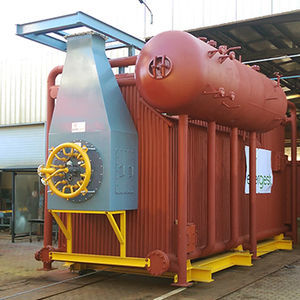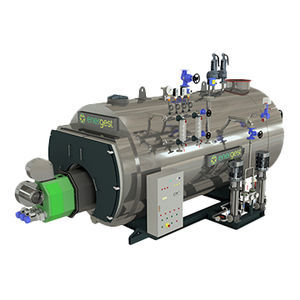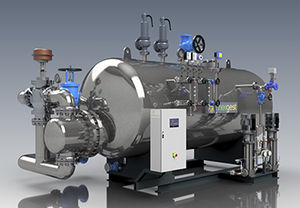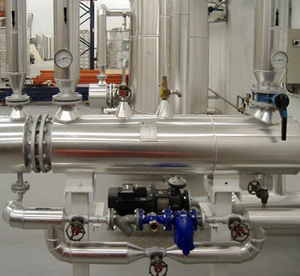
- Industrial machines and equipment
- Heat Exchanger and Refrigeration
- Superheated steam boiler
- ENERGEST Engenharia e Sistemas de Energia, S.A.

- Products
- Catalogs
- News & Trends
- Exhibitions
Steam boiler superheated steamsaturated steamhot water


Add to favorites
Compare this product
Characteristics
- Product
- steam, superheated steam, saturated steam, hot water
- Power source
- wood, pellet
- Other characteristics
- industrial
Description
Recovery Boilers
The recovery boilers take advantage of the energy contained in the exhaust gases from engines and turbines, results of the process of burning residual solid waste or even in the residual heat resulting from industrial processes.
Energest® recovery boilers are dimensioned according to each project, making possible to use this energy to generate steam, heat water, thermal oil or any other type of fluid.
Hot Water, Superheated Hot Water and Thermal Oil
Within this context, Energest® Recovery Boilers are developed for the preparation of Hot Water, Superheated Hot Water and Thermal Oil depending on the temperature range required by the application.
Solutions using Superheated Hot Water are those that require high water temperature (above 110ºC), associated with high pressure.
When the applications require temperatures above 200ºC, the Recovery Boilers can prepare Thermal Oil. In this case, examples are the wood pellet and thermal-fixing industries in the textile sector.
Saturated or Overheated Steam
Energest knowledge in areas such as heat transfer and pressure vessel calculation, combined with experience in welded constructions, guarantee the best performances for our aquatubular and pyrotubular Steam Generators.
The use of saturated steam is one of the safest and most efficient methods of transferring thermal energy, and the majority option in most industrial processes.
The use of superheated steam occurs in thermodynamic applications such as steam turbines for the production of electrical energy.
Other ENERGEST Engenharia e Sistemas de Energia, S.A. products
Equipment
Related Searches
*Prices are pre-tax. They exclude delivery charges and customs duties and do not include additional charges for installation or activation options. Prices are indicative only and may vary by country, with changes to the cost of raw materials and exchange rates.







